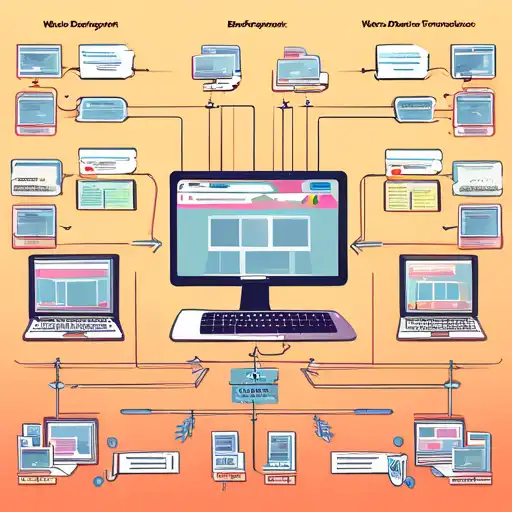Introduction to Web Development Frameworks
In the ever-evolving world of web development, choosing the right framework can be a daunting task. With a plethora of options available, each promising to be the best, how do you decide which one is right for your project? This guide aims to demystify the process, helping you navigate through the maze of web development frameworks to find the perfect match for your needs.
Understanding Web Development Frameworks
Web development frameworks are designed to support the development of web applications by providing a standard way to build and deploy them. They offer a foundation upon which developers can build, saving time and effort by eliminating the need to start from scratch. Frameworks can be broadly categorized into frontend and backend, each serving different purposes in the web development process.
Key Factors to Consider When Choosing a Framework
Selecting the right framework involves considering several key factors, including:
- Project Requirements: The nature and requirements of your project play a crucial role in determining the most suitable framework.
- Learning Curve: Some frameworks are more beginner-friendly than others. Consider the skill level of your team.
- Community and Support: A strong community and good documentation can be invaluable resources.
- Performance: Evaluate the performance benchmarks of the frameworks you're considering.
Popular Web Development Frameworks in 2023
Here are some of the most popular web development frameworks this year:
- React: A JavaScript library for building user interfaces, known for its flexibility and efficiency.
- Angular: A platform and framework for building single-page client applications using HTML and TypeScript.
- Vue.js: An approachable, performant, and versatile framework for building web user interfaces.
- Django: A high-level Python web framework that encourages rapid development and clean, pragmatic design.
Conclusion: Making the Right Choice
Choosing the right web development framework is a critical decision that can significantly impact the success of your project. By carefully considering your project's requirements, your team's expertise, and the strengths and weaknesses of each framework, you can make an informed choice that aligns with your goals. Remember, the best framework is the one that fits your specific needs and helps you achieve your objectives efficiently.
For more insights into web development, check out our latest trends in web development and frontend vs backend development articles.
